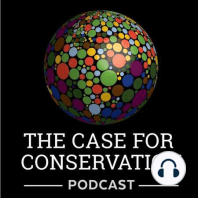7 min listen

11. Performative conservation: What's wrong with showing off? (Adam Welz)
11. Performative conservation: What's wrong with showing off? (Adam Welz)
ratings:
Length:
52 minutes
Released:
Jun 7, 2021
Format:
Podcast episode
Description
These days some very impressive-sounding conservation projects are catching the public eye, from massive tree-planting initiatives to high-profile urban greening. They capture the headlines and they capture the imagination. But do they deserve the level of attention and adulation that they receive? Or should we be a little more discerning as conservationists and the public, and pay a little more attention to the details?Someone who has looked into these questions is Adam Welz. He is a writer, photographer, filmmaker and self-proclaimed conservation theorist with an uncompromising approach to conservation.04:25: What does it mean to be a conservation theorist?10:50: Overview of the concept of "huge tree planting projects".21:30: What is performative conservation?25:19: New York City High Line Park.30:10: Is performative conservation sometimes done with good intentions?35:10: Cheonggyecheon stream restoration project and Saemangeum wetlands.38:55: Prioritizing resources for the most important conservation.41:08: Ecological illiteracy prevents us from identifying mistakes in conservation.46:27: The important, and lack, of nuance in understanding conservation problems.Visit www.case4conservation.com
Released:
Jun 7, 2021
Format:
Podcast episode
Titles in the series (46)
Introduction to the case for conservation podcast (André Mader) by The case for conservation podcast